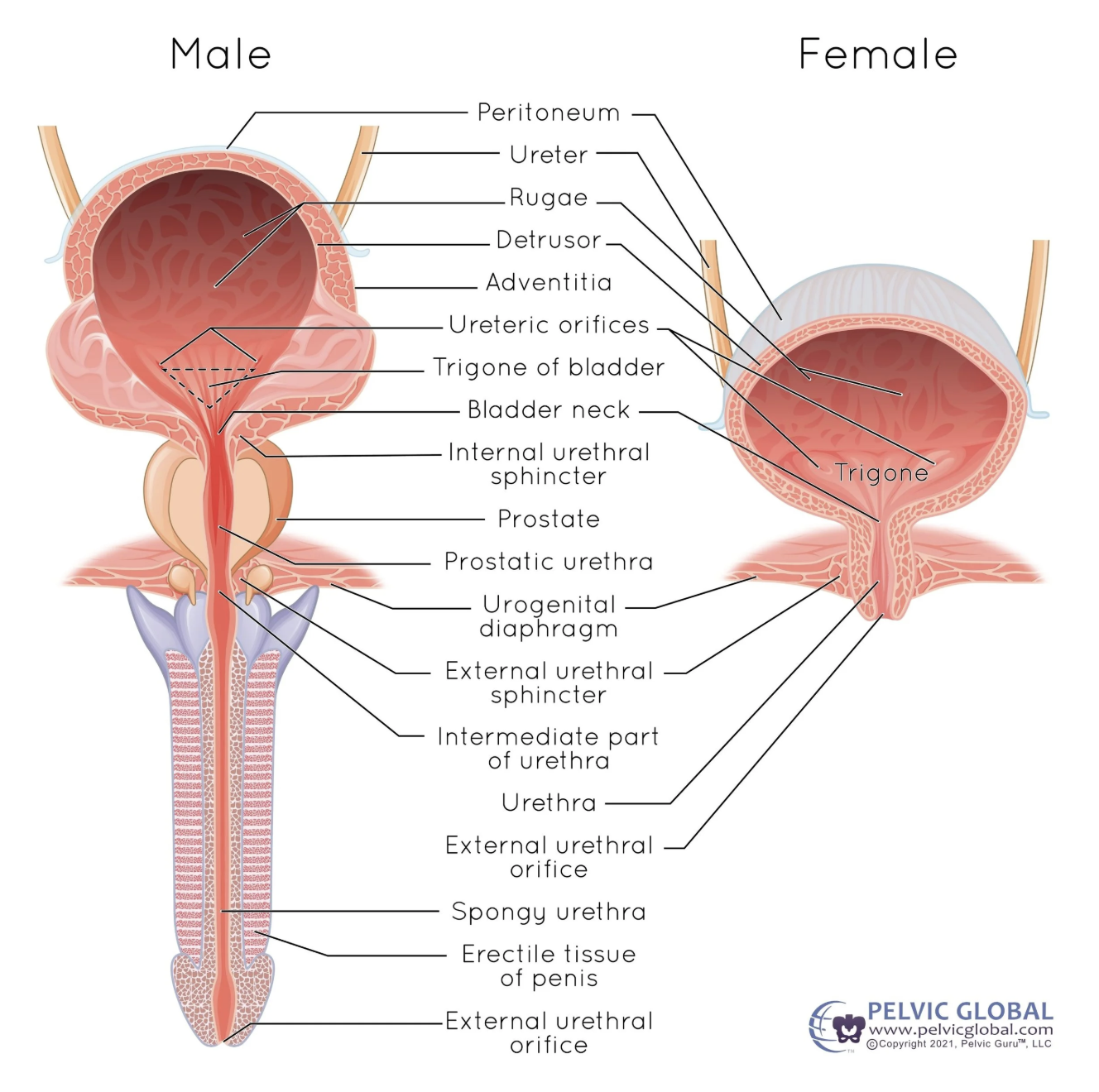8 Bladder Habits That Matter for Pelvic Health
You’ve been going to the bathroom every day since you were born, so you probably don't give this habit much thought. But certain things you’re doing might be causing pelvic floor issues. Here are our top simple but-important tips for a happy bladder.
Image used with permission from Pelvic Guru®, LLC as a Pelvic Global Member.
1. Manage urge incontinence
The more you stress and rush, the more likely it is that you'll leak. To regain control, think "mind over bladder" and practice calming techniques (like diaphragmatic breathing, glute squeezes & calf raises) to help reduce the likelihood of leaking. Once you're calm, walk slowly to the bathroom. You can borrow my mantra; "I'm in control of my bladder, my bladder is not in control of me."
2. Don’t push when you pee
If you feel the need to push, it might indicate that your pelvic floor muscles are too tight. A pelvic floor PT can help you learn to relax these muscles, easing discomfort and improving bladder function.
3. Train your overactive bladder
The good news? You can train your bladder! A healthy "normal" bladder can typically hold 2 cups of urine, and it's normal to pee once every 2-4 hours. If frequent bathroom trips are interrupting your life, try adding 5-10 minutes between trips to slowly increase the time between them. You may also look at how much and how fast you are drinking your fluids (too much too quick can cause an overactive bladder - take small sips throughout the day).
4. Don’t just-in-case pee!
Avoid going to the toilet "just in case" or more often than every 2 hours. Adding unnecessary trips can trick your brain and bladder into thinking you need to urinate more often than you actually do.
5. Stay hydrated
Some people think that drinking less water will help improve leaking or urgency issues, but this can actually worsen symptoms. Dehydration can lead to concentrated (acidic) urine that irritates the bladder, increased risk of infection, weaker bladder muscles, and more. Adequate hydration is essential for maintaining bladder health. Take small sips throughout the day (rather than chugging a lot at a time).
6. Avoid constipation
Constipation can cause bladder issues. When your rectum is full, it can press on your bladder, causing discomfort and possibly leading to leakage. Maintaining a balanced diet with enough fiber can help prevent constipation and its negative impact on your bladder.
7. Watch your diet
Certain foods and drinks can irritate your bladder, contributing to leakage and urgency. Try to limit your intake of common irritants like caffeine, alcohol, carbonated drinks, and spicy foods and see if your symptoms improve.
8. Strengthen your pelvic floor
Strengthening your pelvic floor muscles can help with bladder and bowel control, as well as sexual function. Simple exercises, done correctly and regularly, can make a big difference. Work with a pelvic floor PT to find the exercise regimen that’s right for you.
Remember - leaking, urgency and frequency issues aren’t “just a normal part” of the postpartum period, or getting older. These issues are common, but they’re not normal, and there are plenty of things we can do as pelvic floor physical therapists to help you regain control over your life. To get started, visit www.bostonpelvicpt.com to schedule your initial evaluation. Or contact us at (813) 946-6975 or info@bostonpelvicpt.com with any questions. We offer both in-person (at our Melrose, MA office) and virtual sessions.

